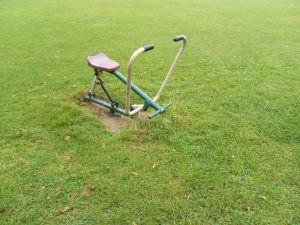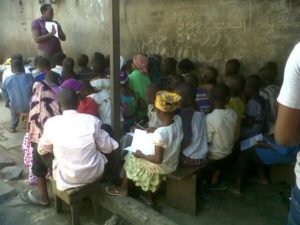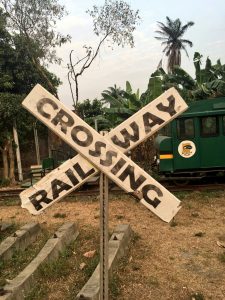
It’s that time of the year when children and young people that are still in formal education always look forward to – the end of school year holidays or as some will put it summer holidays (what is summer in this period of the year in Nigeria with the record of the highest average rainfalls, beats me). However, for some parents, grandparents, relatives or adults that are opportune to have the presence of children or young adults in their lives – it can be a dreadful time or experience for them. From how do they keep the kids safe while they’ve probably gone to fend for the family, to how they’ll manage to keep their own adult’s sanity in the midst of over excited, hyper-active and highly adventurous kids? Well, I presume by now a lot of parents or adults appreciate the positive roles schools and teachers play in the lives of all the lovely young ones in their lives.
I remember in my own childhood days, the anticipation of the end of school year holidays starts from the moment we sat for our exams in school and the closer we got to the end of the exams period the more disillusioned that I as an individual used to be with school and the impending long holidays. And shortly after we’d started the holidays we would become be bogged down with issues like – what do I eat or what can I eat (boy! With no school activities to engage in, my consumption level of foods usually went beyond my normal). Then the adults in our lives back then would complicate our holidays experience by threatening us with reading – as if reading is a bad thing! Or by asking us not to make noise, which I still don’t understand how feasible that is with at least two kids running around or engaged in sporting activities like football and table tennis. Sometimes adults will even ask us to just sit down there! Doing nothing, and how time used to move at snail’s pace in those instances. Also, a lot of our parents got us into another form of formal school arrangement through “summer coaching classes”, “early morning or evening lessons” and later on the generation of kids from late ‘90s started getting tormented with “computer classes or training” and nowadays it has become vocational training, coding or entrepreneurship courses. So much for young people to take from adults who probably have their decisions informed by many factors and top of the list among such factors are usually economic and safety issues.
As a parent I’ve been thinking of how best to approach this conundrum without compromising my kids’ education and at the same time not ruin their holidays experience within means. But there is the major challenge of most adults still having to engage in their normal source of livelihood activities while their kids are on holidays. The situation can be very dire for a lot of families who still have to go to their normal place of employment during the period. However, in this post I will be suggesting some ideas on how to engage the kids both educationally and leisurely without breaking the bank or creating a financial or time constraint burden on yourself.
For leisure experience, if you have a local and an accessible museum around you, I’ll encourage you to take the kids there or any other man-made feature that probably will fascinate kids in general. Growing up in Lagos in the ‘80s and ‘90s I can easily think of construction sites, Tinubu market on Lagos Island and Tejuosho market on the mainland. Also, going to places like the Ido terminus, Carter and Third mainland bridges, and nowadays some of the theme parks and public gardens in the city will be nice to see. Also, I think it will be nice for kids to see different parts of a city and get to understand what it means to live in a city. There are probably different parts of the city in which you live in that reflect different aspects of your city in terms of issues like social class, population density, economic activities, residential and industrial activities. And if you live in the city and you can escape to a nearby or far away town or village that you’ve been willing to see, then go for it. Lest I forget, if you live in a town or countryside, why not explore the craze, noise, speed, energies and flows a city can offer; leave the serenity of a town or countryside for the chaos and serendipity cities offer.
Some of the leisure activities that kids can do with little or no financial cost include: football, tennis, table tennis, badminton, basketball, handball, Scrabble, volleyball, running, jump rope, tug of war, tinko tinko, suwe, who is in the garden?, police and thief, and a bit of gardening for those that can. There are definitely many more games that kids self generate, games like hide and seek. I know for some people there is a tendency to look at some, if not most of these outdoor/indoor activities as time wasters, however, if these activities are considered from educational perspectives, then it would become obvious that engaging in them help in developing physical, social, emotional and psychological wellbeing, cognitive and kinaesthetic skills in children and young people.
For instance the team working skills children develop while participating in team sports like football and handball or the experience of self confidence they get from getting involved in individual sports like table tennis and running. There are also important life skills and attributes like resilience, grit and focus that are developed by engaging in these activities, however, children should not be allowed to drown themselves in any activity to the extent that the whole experience will become counterproductive and lead to loss of valuable life’s resource – time. Everything must be done in proportion, both structured and unstructured.
There is usually the educational debate on summer reading loss, that is, after summer holiday teachers usually notice that kids reading levels drop and as such parents and adults are encouraged to engage the young ones during the holidays in reading activities. Hence, it’s normal to hear, read or see different summer reading activities during this period. For me, reading shouldn’t be specially preconditioned to anytime of the year but due to the nature of the summer holidays period, particularly in terms of its length, then it is definitely a period of opportunity that kids can be allowed to explore books of interest to them, taken to the local library or bookstore to wander and get lost in the world of books through reading and exploring stacks of books in a used bookstore, roadside bookstall or shelves in a bookstore.
For your kid’s summer holidays educational activities you can consider sites like code.org for coding education, khanacademy.org for maths experience or if you like the analogue way – Lacombe (yes, I know you’re probably thinking – in what age is this person? Well, I still make use it of it every now and then and it’s a good source for maths drills), africanstorybook.org for a wide range of African stories from different parts of the continent, and the Cambridge Grammar in Use series. YouTube is a very valuable place to be, if you’re interested in experiencing the wonders of nature in a country like Nigeria and you’re not able to physically travel to where those features are. If google waterfalls in Nigeria under the video section, you’ll marvel at the gifts of nature therein in the country. And if you would like to physically travel to some of the most interesting places in Nigeria, I would encourage you to check out some of the following YouTube links below for places to consider:
Sokoto the Basis of Tourism in Nigeria
Kano City Wall
Niger Bridge
River Niger, Lokoja
Mambilla Plateau, Taraba State
Ngwo waterfall, Enugu
Gurara Waterfalls, Niger
Badagry Slavery Museum
Lekki Conservation Centre, Lagos
Please, leave your thoughts on this post in the comment section and feel free to share the article with your contacts. Thanks for taking out of your precious time to read my article/s!
If you like this post, kindly subscribe and/or follow me on Twitter @otukogbe and @EdusoundsNg or on Facebook at edusoundsng.




